The Best Data Analytics Courses (After Trying Myself)
A breakdown of the best options, their pros & cons, and my personal recommendations.
Hey friends, Happy Tuesday!
After more than 17 years in data, I still get the same question from friends and coworkers, and you:
“What are the best courses to actually learn data analytics?”
I wanted real answers. So I started testing the courses myself. I signed up, compared platforms, and ended up with hundreds of tabs open. It honestly felt like walking through a jungle of courses.
And here’s what I found. Most of them were made by people who’ve never worked on real projects. Too much theory, not enough practice, and no connection to how data is used inside real companies.
No surprise that most learners get stuck. A Harvard and MIT study showed that only about 5% of people actually finish online courses. The rest quit, not because they don’t care, but because most courses are just boring or poorly built.
So instead of guessing, I decided to figure it out properly. After months of testing and comparing, I’ve picked the few courses I’d actually recommend to a close friend starting out in data analytics.
Here’s what stood out.
The Process, Skills and Tools
Before we talk about courses, it helps to know what the job really involves.
A data analyst’s work usually follows four main steps.
You collect the data from databases, files, or APIs.
You clean it by fixing errors, removing duplicates, and handling missing values.
You analyze it to find patterns and insights that explain what’s happening in the business.
Then you visualize and communicate the results so people can make better decisions.
That’s the core of it. You answer business questions using data.
To do that, you only need two tools:
SQL for working with data
Power BI or Tableau for visualizing it
If you master those, you’ll already be ahead of most beginners.
And if you want to go a bit further, learn some Python basics and Pandas. It helps with larger or more complex data.
Two Ways to Learn
Everyone learns differently.
Some people like structure, others prefer to explore.
You can either follow a certification path or teach yourself using free resources.
Both work. It just depends on your goals.
The Certification Path
This path is structured. You follow a set curriculum, complete projects, take an exam, and get certified.
The main benefit is recognition. Certifications from Google, Microsoft, or Databricks carry real weight with recruiters. The downside is cost, usually between 100 and 200 dollars.
There are two types to know:
Certificates of Completion:
These come from platforms like Udemy. They’re good for learning and sharing on LinkedIn, but they don’t hold much value when applying for jobs.Industry-Recognized Certifications:
Offered by big tech companies like Google, Microsoft, and Databricks. These are the ones that actually matter on a resume.
Note: I always recommend going for industry-recognized certifications whenever you can. They carry real value on your resume and show that you’ve learned the skills the right way.
Google Data Analytics Professional Certificate (Coursera)
When people think about starting a career in data analytics, this course usually comes up first. It’s made by Google, the same company that handles billions of searches every day, and it’s a solid starting point.
Over three million people have taken this program, and it holds a 4.8 rating from more than 160,000 reviews. That alone tells you how solid it is.
The course is beginner-friendly and well structured. You’ll learn how to clean, analyze, and visualize data using SQL and Tableau, and finish with small projects you can show in a portfolio.
If you’re looking for a structured, trusted starting point, this is one of the best places to begin.
Microsoft Certifications (PL-300 and DP-900)
Microsoft offers two certifications that are both practical and respected.
PL-300: Power BI Data Analyst
Focuses on cleaning, modeling, and visualizing data in Power BI. It’s one of the most recognized certifications in analytics and often a requirement in job postings.DP-900: Azure Data Fundamentals
Covers the basics of data storage, queries, and cloud fundamentals. For SQL-heavy roles, you can also look into DP-300, and for an easy win, AZ-900 (Azure Fundamentals) takes only five hours to complete.
Note: Those certifications are costly and small tip here is to check DataCamp partners with Microsoft and gives you 50% off certification exams. Their Power BI and SQL Analyst tracks are perfect for building the skills you’ll need before taking the test.
DataCamp | Associate Data Analyst in SQL
DataCamp | Data Analyst in Power BI
Tableau Data Analyst Certification
If you’re getting into data visualization, Tableau is a skill worth having. It’s used pretty much everywhere… from tech and finance to healthcare and retail.
The official Salesforce Tableau Data Analyst Certification is well known and looks great on a resume. It shows you know how to turn data into something people can actually understand and use.
Link to Certification → LINK
My Tableau Udemy Course → LINK – structured learning with progress tracking and a certificate of completion.
My Tableau Youtube Course → LINK – a free 20-hour course that takes you from beginner to advanced dashboards.
And yes, I’m proud to share that I was named a Tableau Ambassador this year.
Databricks Certified Data Analyst Associate
Databricks has become one of the most popular platforms for modern data teams. If you want to work with data in the cloud, this certification is a smart move.
The Databricks Certified Data Analyst Associate shows you can query, clean, and analyze data using SQL directly in Databricks. It’s focused on real cloud workflows, not theory.
You can either use Databricks’ official course or DataCamp’s Databricks track, which is more affordable.
I interview analysts and engineers regularly, and seeing Databricks certification on a resume always stands out.
The Self-Learning Route (FREE)
Not everyone can or needs to pay for certifications. If your goal is to learn or upskill, you can do everything for free.
Here’s how I’d approach it.
Start with a roadmap.
Watch my video How I Would Become a Data Analyst in 2025. It includes a Notion roadmap with every skill you’ll need.Learn SQL and Tableau.
My SQL Course (30 hours) covers everything from beginner to advanced.
My Tableau Course (20 hours) teaches you how to build dashboards and complete projects.
Build portfolio projects.
You can find five real-world SQL and Tableau projects on my channel. They’re based on the same steps I use at work.
💡 The main thing to remember is this: free doesn’t mean low quality.
Some of the best material I’ve seen is on YouTube.
I’ve covered everything you need to become a data analyst, from SQL and Tableau to Python and portfolio projects. You can learn all of it for free:
And if you want variety, there are other great YouTube creators:
Luke Barousse, Alex the Analyst, Tim Tableau, Mosh Hamedani and Mo Chen all produce high-quality courses.
A Short Story
When I first wanted to learn German about 17 years ago, I couldn’t afford classes.
So I learned from YouTube and a few books.
I reached level B2, passed the exam, and later joined a university here in Germany.
Completely self-taught. 😎
It wasn’t easy, but it proved something to me.
If you have discipline, free resources are enough.
Final Thoughts
There isn’t one perfect path.
If your goal is to land a job, certifications from Google, Microsoft, Tableau, or Databricks help a lot.
If you just want to learn or grow, the free route works perfectly too.
What matters most is that you build real skills and finish what you start.
The best analysts I’ve met aren’t the ones with the most certificates.
They’re the ones who stay curious, finish projects, and know how to turn data into something that matters.
Thanks for reading ❤️
Baraa
Baraa
Also, here are 3 complete roadmap videos if you're figuring out where to start:
📌 Data Engineering Roadmap
📌 Data Science Roadmap
📌 Data Analyst Roadmap
Hey friends —
I’m Baraa. I’m an IT professional and YouTuber.
My mission is to share the knowledge I’ve gained over the years and to make working with data easier, fun, and accessible to everyone through courses that are free, simple, and easy!


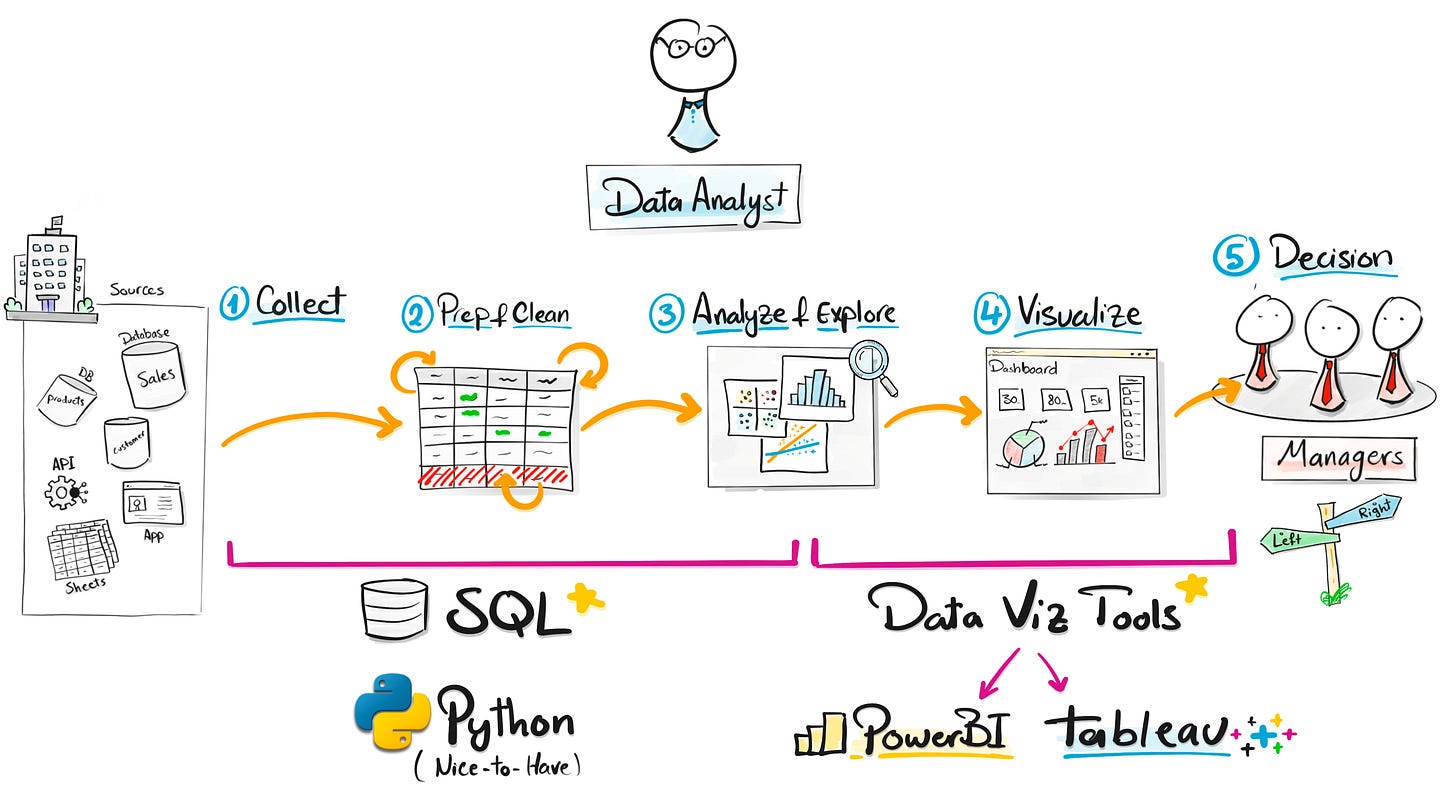
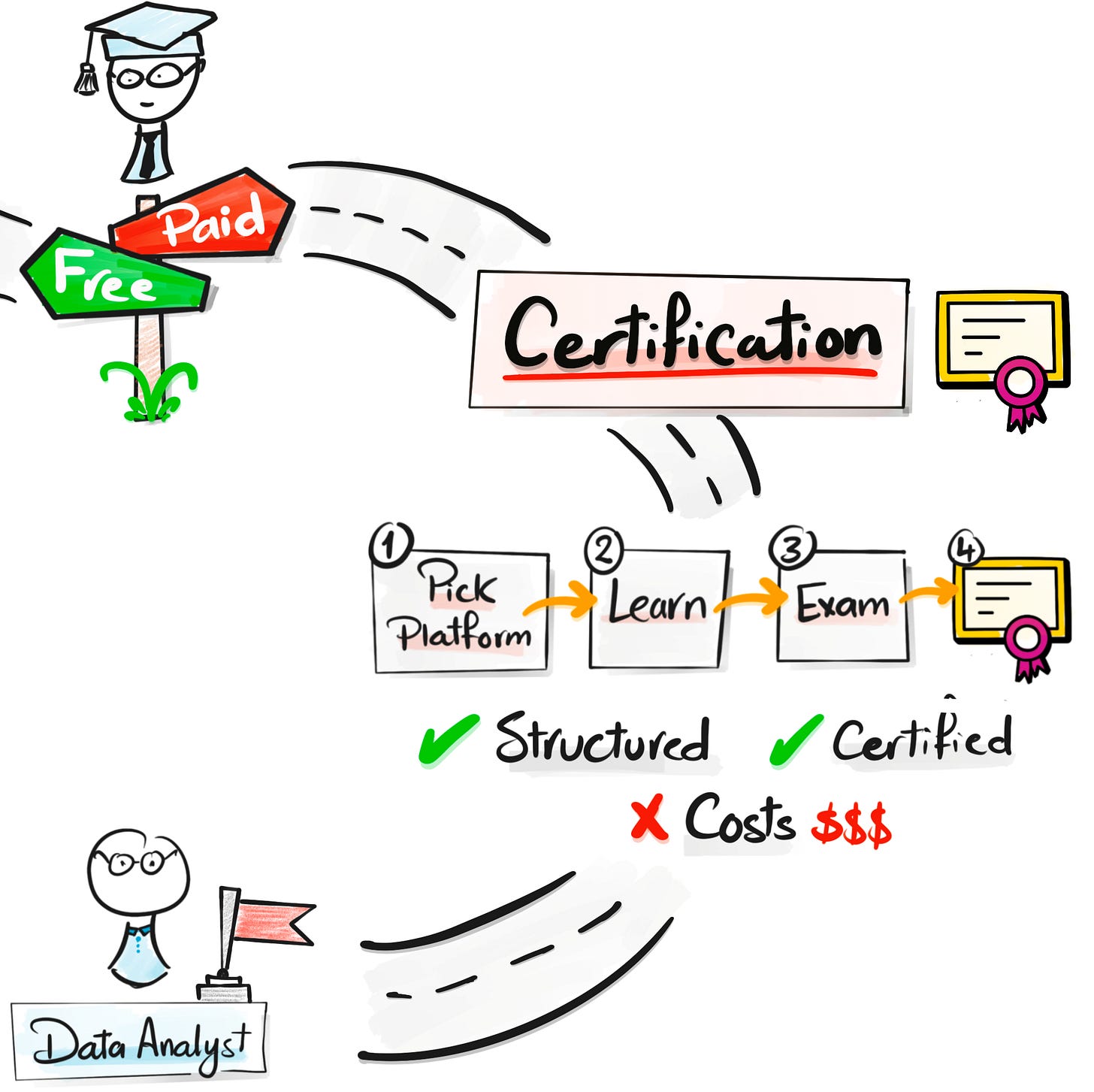
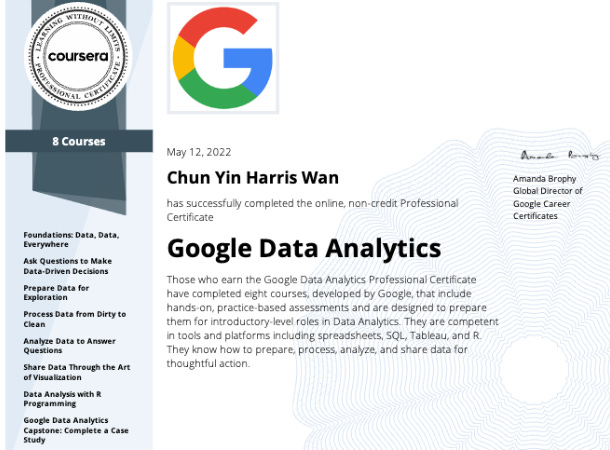
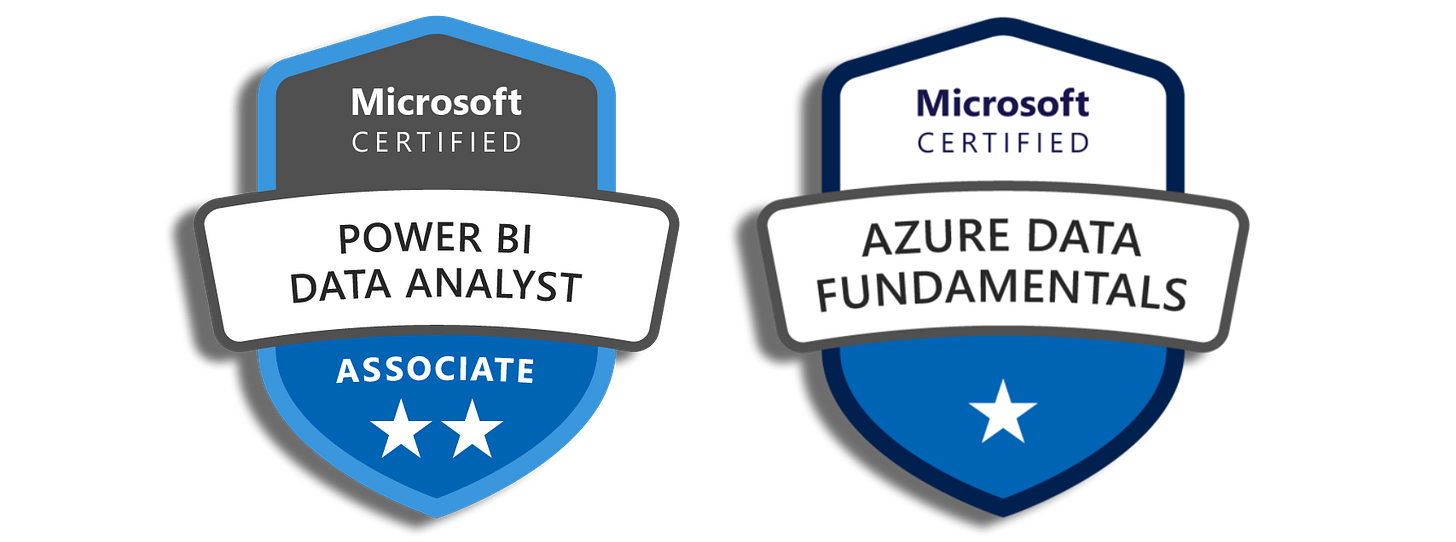
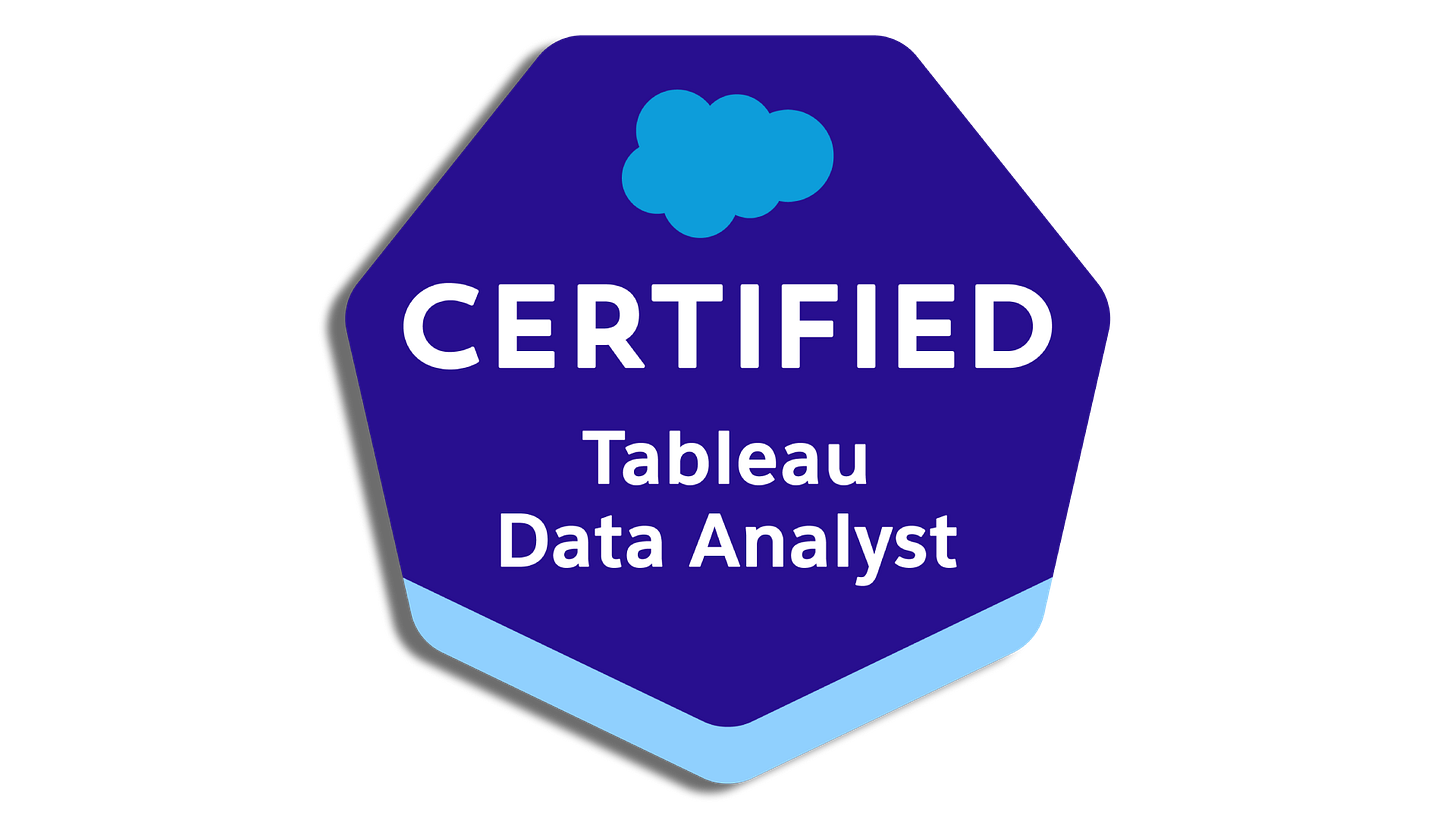
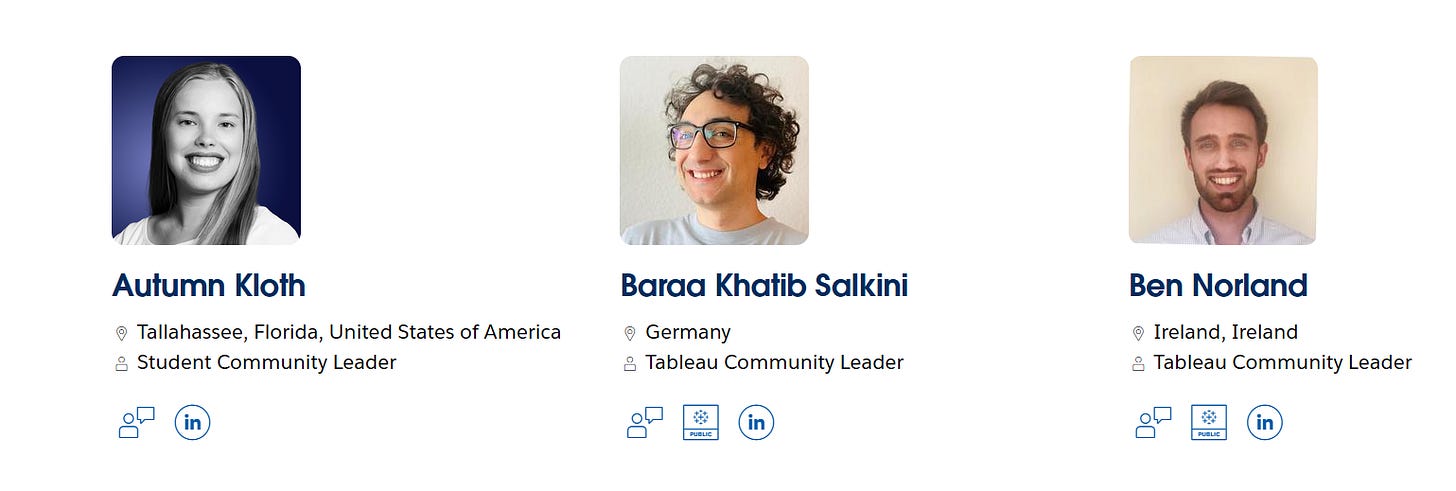
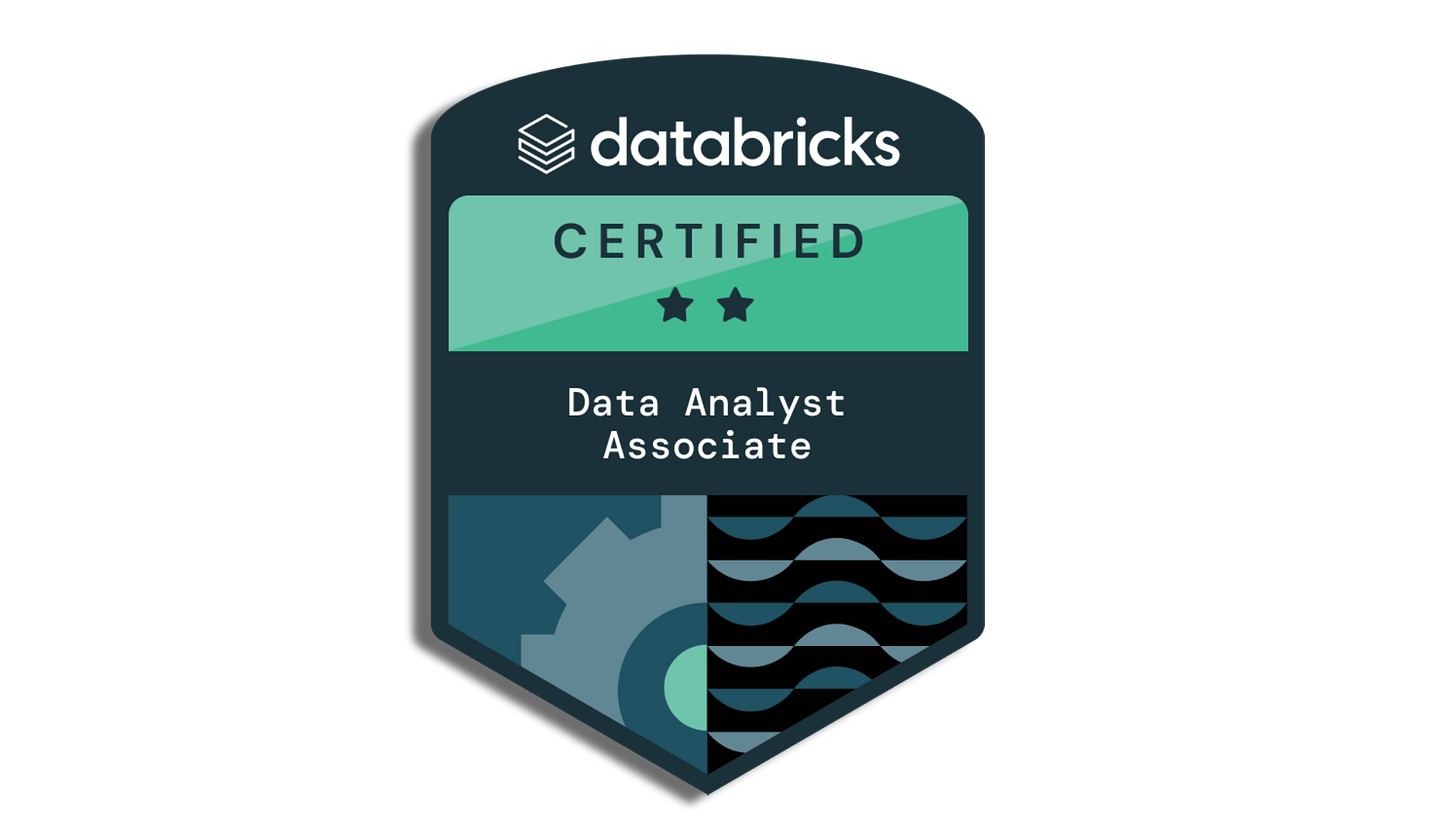
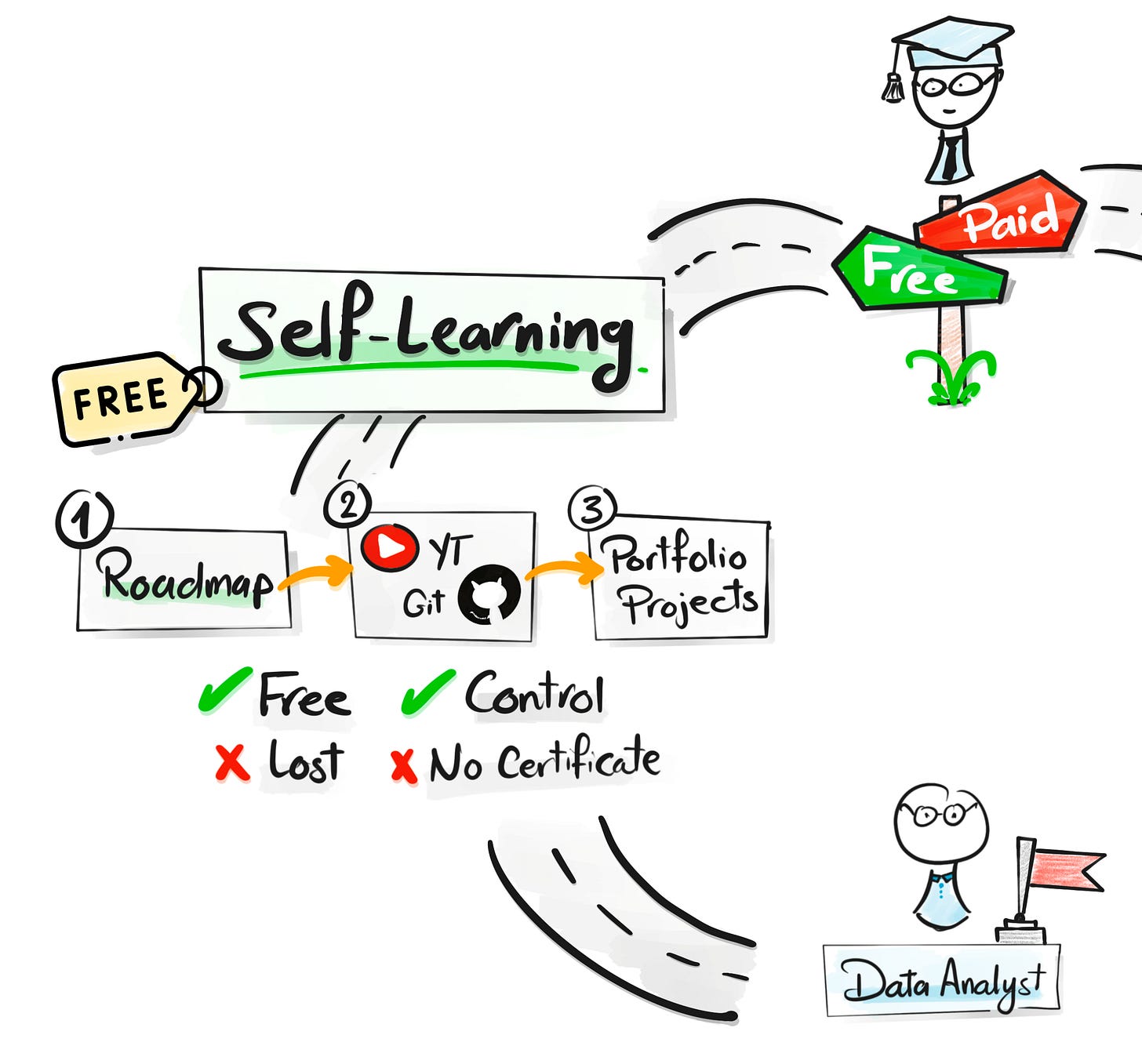

any specific certifications that distinguish between data analyst and engineer?